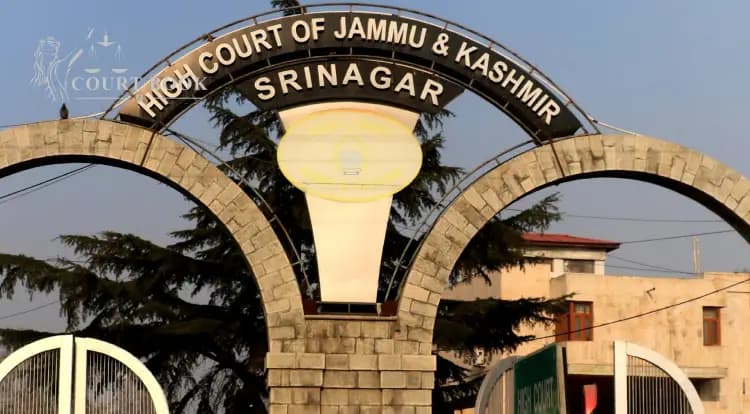The Jammu and Kashmir and Ladakh High Court at Jammu has set aside an order passed by the Sub-Judge of Batote in a long-pending land dispute dating back more than three decades. Justice Sanjay Dhar, while hearing a civil revision petition filed by Ghulam Haider and another, ruled that the executing court erred in dismissing their objections without examining their independent claim over the disputed land.
Background
The case traces back to 1993, when the Sub-Judge, Batote decreed a suit in favour of Kamlesh Singh and another, granting them a permanent injunction to stop encroachment on about 24 kanals of land in Amrit Chasime, Champa, Batote. The defendants in that case were Mst. Janu and her husband, Sain Mohammad.
After the decree, Mst. Janu passed away, and her sons Ghulam Haider and his brother became parties in the execution proceedings as her legal heirs. The decree-holders alleged that the sons were interfering with their possession despite the injunction.
Haider and his brother, however, objected, asserting that they were not bound by their mother’s case. They claimed independent rights as “protected tenants” of the land, inherited from their paternal uncle, Mohammad Khan, under the old J&K Tenancy Act. They argued that since their rights were separate from those of their mother, the injunction could not be enforced against them.
Court’s Observations
Justice Sanjay Dhar took a close look at Sections 47 and 50 of the Civil Procedure Code (CPC), which govern how courts handle questions arising during execution of decrees. The judge noted that Section 47 expressly requires an executing court to determine “all questions arising between parties or their representatives relating to execution, discharge, or satisfaction of a decree.”
“The executing court is duty-bound to adjudicate upon such claims and record its findings,” Justice Dhar remarked, referencing Supreme Court rulings including Bhanwar Lal v. Satyanarain (1995) and Jini Dhanrajgir v. Shibu Mathew (2023). These judgments, he said, make it clear that objections by third parties or legal heirs claiming independent rights cannot simply be brushed aside.
He further pointed out that even though the original 1993 decree was not ex parte, it didn’t automatically prevent the petitioners from asserting independent rights. “The petitioners were not parties to the original suit and are entitled to project their claim in an independent capacity,” the bench observed.
The court criticized the Batote Sub-Judge’s approach, calling it “contrary to law” for avoiding an inquiry into the heirs’ objections. “Having abdicated its duty to determine the said question, the learned Executing Court has failed to exercise the jurisdiction vested with it,” the judge said in a firm tone.
Read Also:- Bombay High Court Confirms Right of Preemption in Hindu Joint Family Land Sale, Dismisses Appeals
Decision
Concluding that the executing court acted beyond its limits, the High Court allowed the revision petition. The impugned order dated March 19, 2025, was set aside. The matter has been remanded back to the Sub-Judge at Batote with directions to reconsider the objections raised by the petitioners on their merits, after giving both sides an opportunity to be heard.
With that, a case that began over thirty years ago finds itself heading back to the local court once more a reminder of how land disputes in India often refuse to fade away quietly.
Case Title: Ghulam Haider & Anr. vs Kamlesh Singh & Anr.
Case Type: Civil Revision Petition (Land Dispute / Execution Proceedings)
Date of Judgment: March 19, 2025














